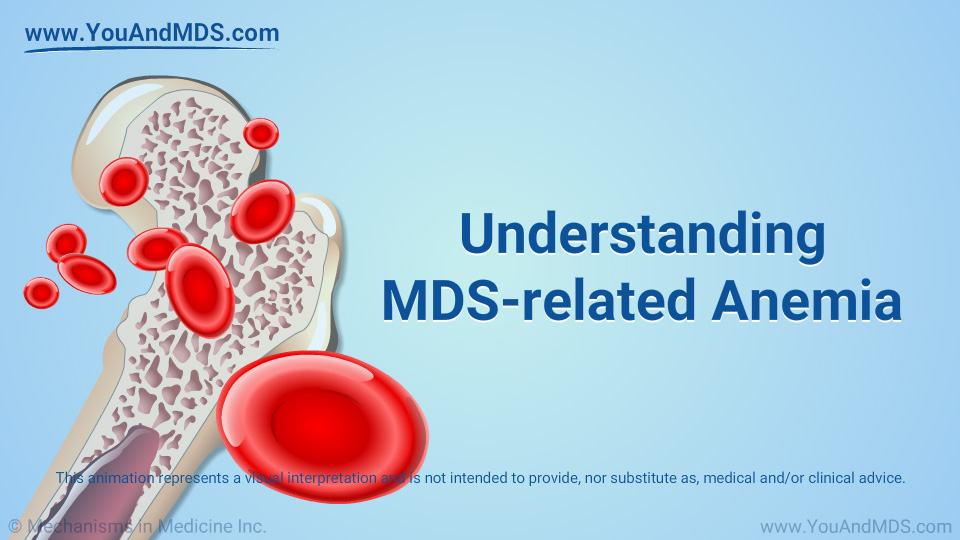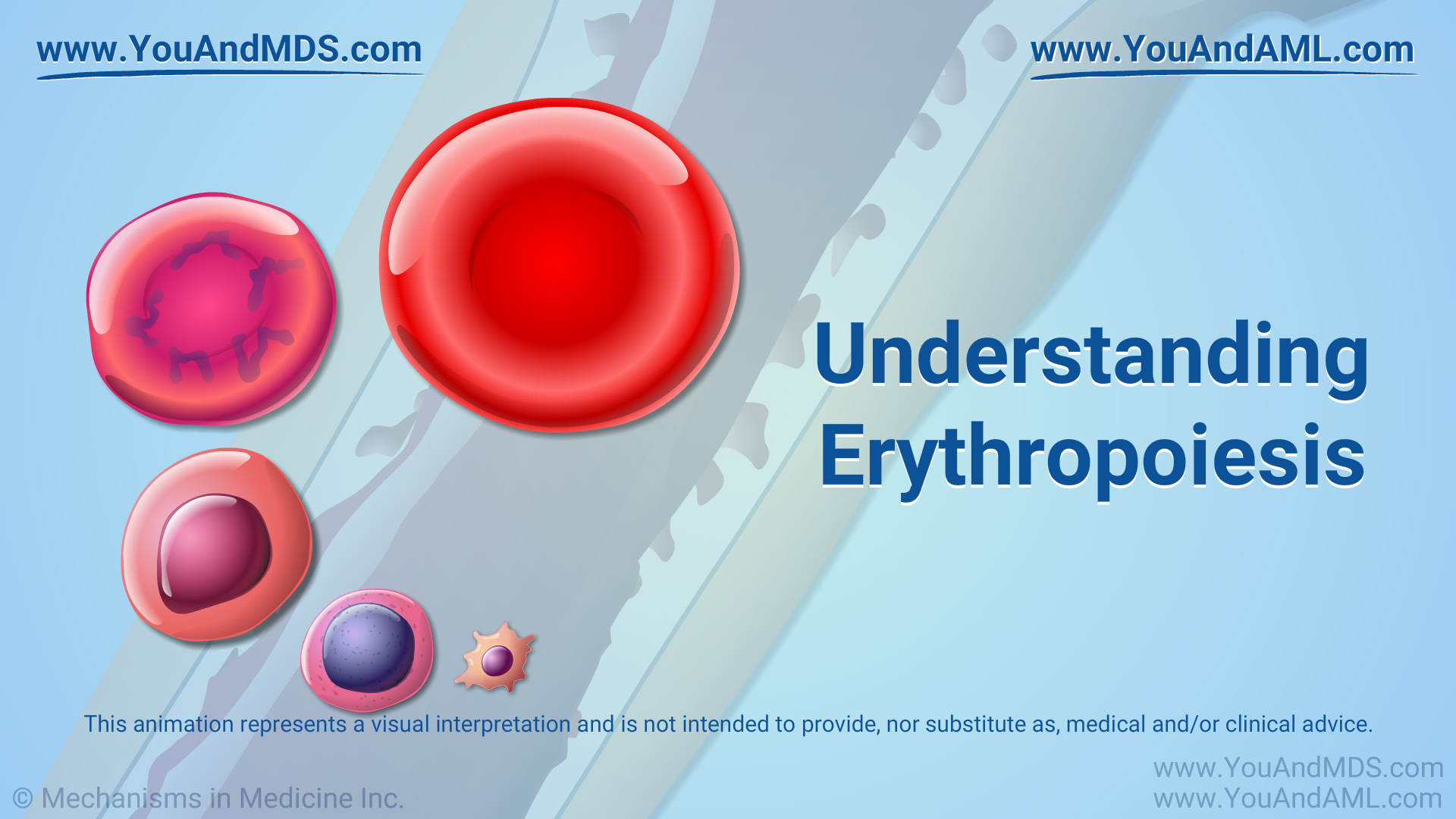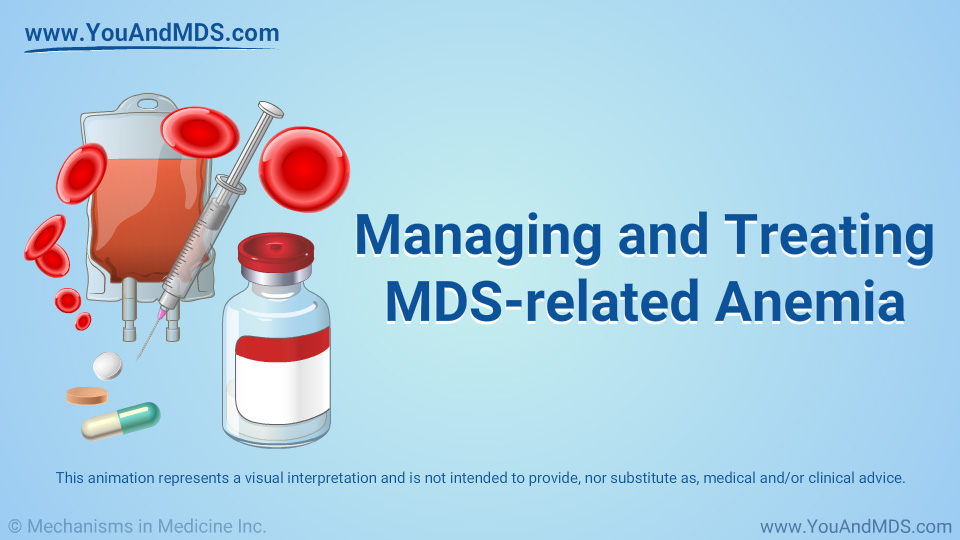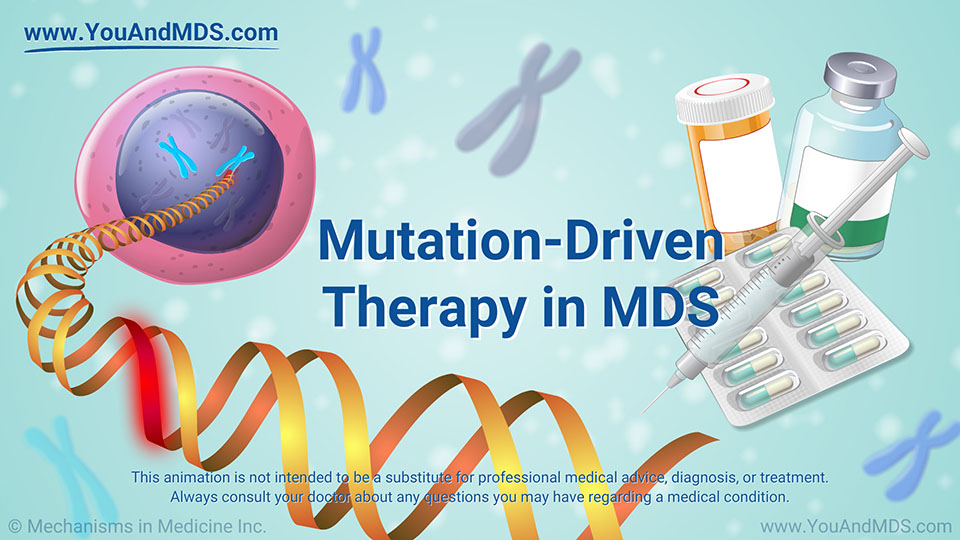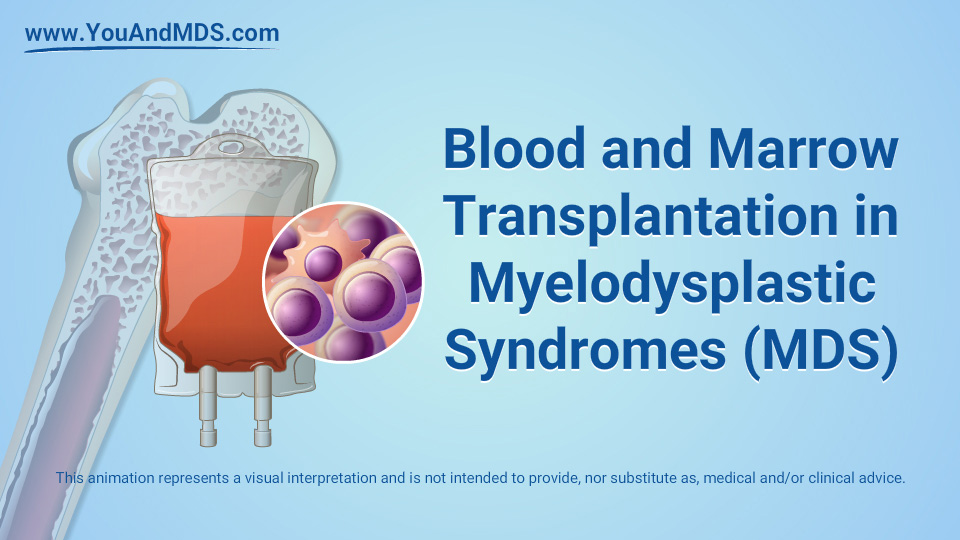Animation - Understanding Genetic Mutations in Myelodysplastic Syndromes (MDS)
MDS is very different from person to person, so learning your mutation profile is important. Knowing what mutations you have can help you and your doctor understand how you are likely to be affected by your MDS, including how you will respond to certain treatments. Watch to learn about genetic changes in myelodysplastic syndromes (MDS), and the many different driver mutations that are associated with MDS. Some mutated genes are associated with lower-risk disease, while others may indicate greater risk. Your mutation profile can change over time so it is important to repeat the testing at different stages of your treatment. The more you know about your genetic makeup in MDS, the more you will understand the outlook and in some cases, the treatment that is most likely to be effective.
Click here to take our SURVEY
Your feedback is important to us! We will use your feedback to develop future areas of content about MDS which will help other patients, caregivers and families.
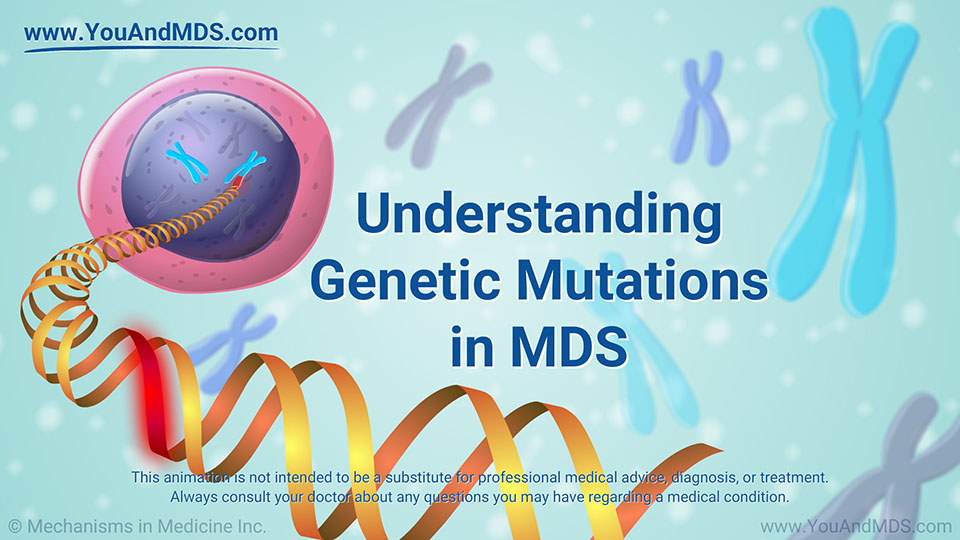
Animation - Understanding Genetic Mutations in MDS
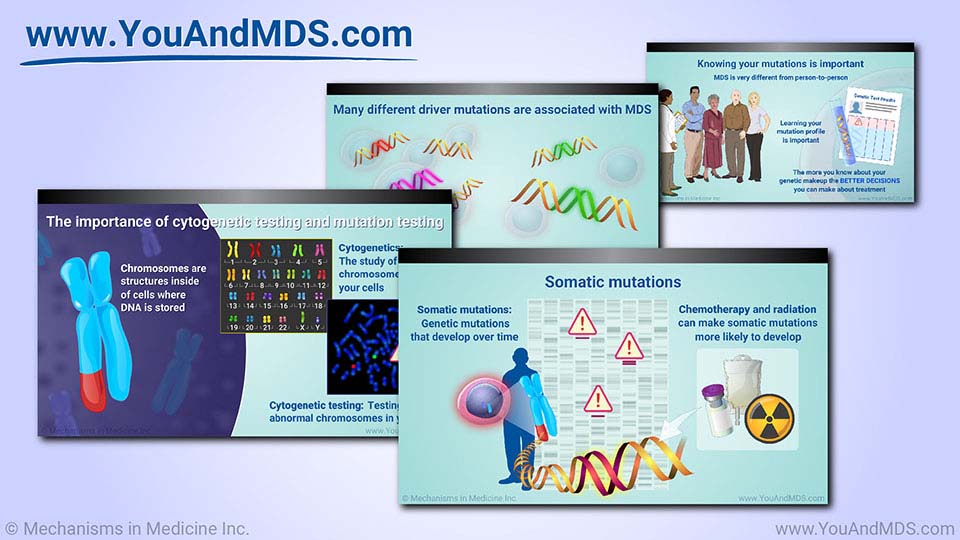
Slide Show - Understanding Genetic Mutations in MDS

1.
What is a genetic mutation, a biomarker, and cytogenetic analysis in MDS?

2.
Why is understanding genetic mutations and cytogenetics in MDS important?

3.
Is an MDS-related genetic mutation something I was born with or something that occurred later on?

4.
How do my genetic mutations influence MDS risk?

5.
How does genetic testing help in MDS diagnosis?

6.
How is genetic testing for MDS carried out?

7.
Which genetic mutations and cytogenetic changes have a more favorable response to MDS treatment?

8.
Which genetic mutations and cytogenetic changes have a less favorable response to MDS treatment?

9.
Which MDS genetic mutations are most likely to cause relapse?

10.
What questions should I ask my doctor about MDS genetic testing?

11.
Becky's story: What is your MDS gene mutation profile? When and how were you tested for it?

12.
Donna's story: What is your MDS gene mutation profile? When and how were you tested for it?

13.
Holly's story: What is your MDS gene mutation profile? When and how were you tested for it?

14.
Becky's story: What advice do you have for other MDS patients about genetic testing?
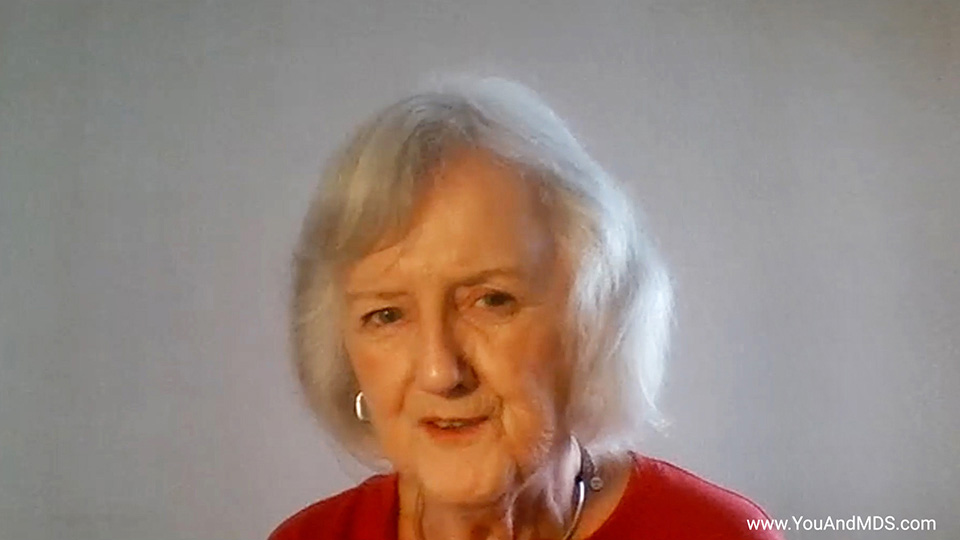
15.
Donna's story: What advice do you have for other MDS patients about genetic testing?

16.
Holly's story: What advice do you have for other MDS patients about genetic testing?



